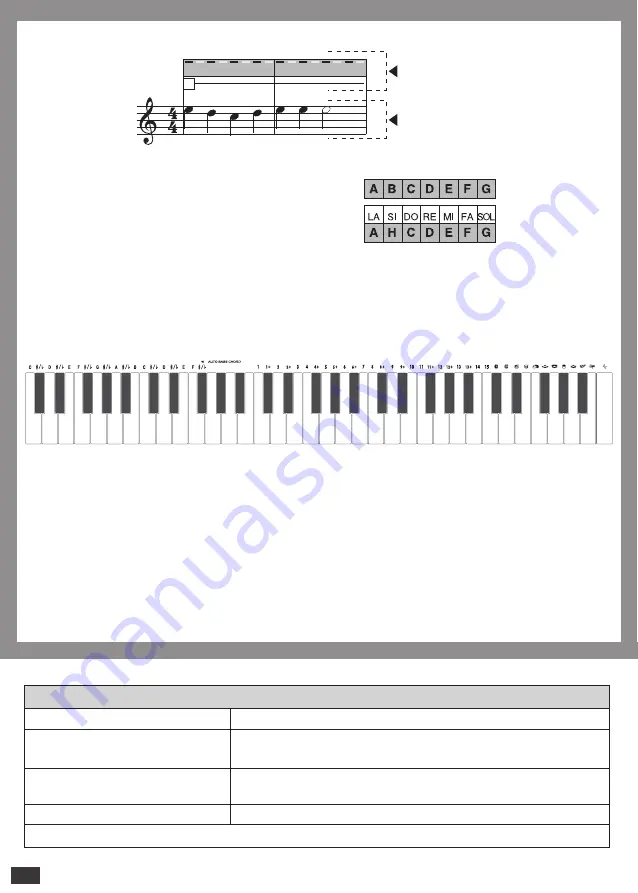
88
8
All musical notes of the song, which use classical wording, are under the grey strip.
For now, it is sufficient to remember that each note has a name:
A, B, C, D, E, F, G, in anglo-saxon notation which correspond to LA,
SI, DO, RE, MI, FA, SOL, in Latin notation and A, H, C, D, E, F, G,
in German notation. This correspondence is illustrated on the next
diagram.
HOW TO PLAY THE SONG IN EASY MODE
MELODY
Each note corresponds to a number on the grey strip. However, as you can see, there is a number on each note as well.
This will help you to find the right key easily.
To play the melody, read the sequence of numbers contained in the grey band and press, one after the other, the white keys
which correspond to the same numbers on the strip above the keyboard. The black keys correspond to the numbers for
example on the music method grey band followed by the “+”. The black key after white key 1 corresponds to the symbol 1+.
Now that you know which key corresponds to which note, try and play the tune following the numbers on the grey strip.
CHORDS
To use accompaniment, press each chord with SINGLE FINGER or FINGER mode for the time indicated by the line next to
the letter that represents the chord, until you come to the next one.
TROUBLE SHOOTING GUIDE
Problem
Solution
The instrument does not play or
the sound is distorted.
The instrument switches on or
off when keys are pressed.
The display does not light up.
Batteries discharged – insert new batteries.
Batteries inserted incorrectly – check. Mains adapter not suitable.
Batteries discharged – insert new batteries.
Check the batteries or the mains adapter.
ATTENTION: In the event of malfunction, remove the batteries and then reinsert them.
Anglo-saxon notation
Latin notation
German notation
traditional
writing
simplified
writing
Mar _ y
had
a
lit
_ tle
lamb
9
9
8
10
10
10
10
E
E
E
D
D
C
C
E
8
E N G L I S H









































